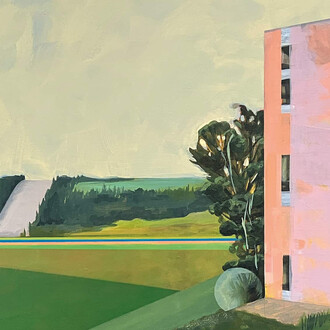In her works, Indian artist Poulomi Basu (b. 1983) interweaves documentary photographs and staged scenes enacted in front of fantastical backdrops, creating multimedia, often large-scale installations. The title of the exhibition refers to the phantasmagorias of the 18th century, which captivated their audiences with projections and optical illusions. Basu also blurs the lines between imagination and reality: she drafts speculative visions of the future that simultaneously reflect the present of her protagonists and highlight possibilities for self-empowerment and resistance. In addition to photography, the artist also employs virtual reality, film and performance in her transmedia practice, using the activist potential of the different media to champion the rights of marginalised groups.
Fotomuseum Winterthur is mounting the first major solo museum exhibition with the artist, showing a selection of her pieces. They are centred around the stories of women who, like her, come from the Global South and find themselves pushed to the margins of society. In Sisters of the moon, for example, one of her most recent works, the artist uses fictionalised self-portraits set against dystopian landscapes to address the effects of water and resource scarcity on women. At the same time, she draws attention to the close intertwining of ecological and feminist issues. By staging herself as the protagonist in front of the camera, the artist shows solidarity with the women who have opened themselves up to her.
Basu’s works call for resistance to patriarchal structures, prevailing hierarchies and the systematic oppression of women and girls. The resilience of the protagonists in her works runs like a common thread through her images: the artist enables them to take on the role of empowered actors and to speak out, telling their personal stories and thus challenging audience perceptions.
A glossary was written by Moubani Maitra for the exhibition.









![Karel Appel, Le coq furieux [The furious rooster] (detail), 1952. Courtesy of Kunstmuseum Bern](http://media.meer.com/attachments/de322f88933729d2014dc4e021d4a6694046a744/store/fill/330/330/c26a6c5ef5e2ed397d4a2e9bc00ac739c40ba8384f45f9ce1ed85adba600/Karel-Appel-Le-coq-furieux-The-furious-rooster-detail-1952-Courtesy-of-Kunstmuseum-Bern.jpg)
